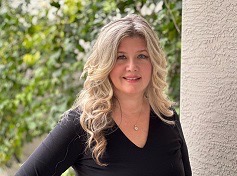
Government bodies develop zoning regulations to enhance the peaceful enjoyment of every member of a community’s property. These regulations are part of a larger land-use plan that separates commercial, retail and residential areas. Few would disagree that zoning rules prove beneficial in the overall scheme of things.
But by that same token, they also represent an encumbrance on a homeowner’s use of land. When zoning regulations impede what many would consider a reasonable use, property owners usually apply for a variance. A variance acts as a mechanism to petition municipal boards to allow an otherwise unauthorized use of land. Negotiating, however, may prove challenging. That’s why understanding the following elements of securing a variance approval could help property owners avoid procedural setbacks.
It may seem almost counterintuitive, but the first step to gaining a variance begins with a phone call. The people who work in these offices handle difficult variance applications every day. An experienced clerk or zoning official has probably dealt with a request like yours before and can provide critical information. Outside any steps specific to your local agencies, the following steps are routine.
Write a Letter: Consider crafting a letter that details the parcel’s size, existing structures and details about the proposed project. Offer reasoning why setting aside guidelines such as setbacks or others are reasonable in the case. It’s also worth providing letters from abutters who support your zoning change.
Apply: Local zoning or building offices often provide the formal variance application. Fill it out in its entirety and file it with all required supporting documents.
Appear at the Zoning Hearing: Public hearings remain a standard part of the process. A legal advertisement will probably run in the newspaper of record or other resources for making the information known. Applicants typically appear at a formal zoning meeting to discuss the matter and get approval or denial.
Although reasonable land-use changes gain municipal approval without difficulty, it’s not uncommon for boards to resist when neighbors or community members object. If the variance appears consistent with others approved in the past, appealing the decision may be in the homeowner’s best interest. It may also be worthwhile to consult with a land-use attorney for complicated variance applications and appeals.

Kim Cuomo brings a 25 year wealth of experience and passion to the world of real estate, having dedicated over two decades to serving clients across the vibrant landscapes of South Florida. With a background as a paralegal, Kim's transition into real estate was not just a career change, but a discovery of her true calling. Her deep-rooted love for the industry is evident in the personalized, hands-on approach she adopts with each client, ensuring they feel valued and supported through every step of their journey.
Whether navigating the complexities of a first-time home purchase or orchestrating the sale of a luxurious $30 million estate, Kim's expertise spans the full spectrum of residential and commercial real estate. Her reach extends across Palm Beach County, Martin County, St. Lucie County, Broward County, and Miami-Dade County, offering a comprehensive understanding of the unique markets within each area.
Kim Cuomo's dedication to excellence and her ability to forge meaningful connections with clients make her not just an agent, but a trusted advisor and friend in one of the most significant transactions of their lives. Her commitment to providing exceptional service is unwavering, making her a standout professional in the South Florida real estate scene.